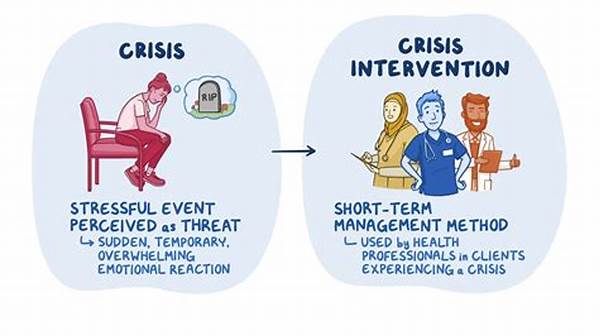
Fostering Understanding During Crises
- Daniel Anderson
- 0
- Posted on
In times of crisis, the importance of communication and empathy cannot be overstated. Our ability to foster understanding during these challenging moments can dramatically affect the outcome of conflicts and hardships. By enhancing our communication skills and exercising greater empathy, we can bridge divides and address the core issues that face us.
Read Now : Restorative Drinks For Hangover Recovery
Cultivating Empathy
In the hustle and bustle of a crisis, emotions run high, and it’s easy to lose sight of other perspectives. To truly foster understanding during crises, it’s essential to cultivate empathy. Imagine walking a mile in someone else’s shoes; that’s the vibe we’re going for. Everyone’s dealing with their stuff, you know? By taking a second to really listen, not just hear, and feel what the other person is going through, we gain insights into their world. It’s like unlocking a door to understanding that was hidden before. This doesn’t mean we have to agree with everything — far from it. But fostering understanding during crises is about making room for these feelings, letting them breathe, and bridging those gaps of misunderstanding. It’s this vibe that can transform conflict into collaboration.
Connecting Beyond Words
1. Use active listening — zone in, don’t just tune out. Fostering understanding during crises starts here.
2. Drop the ego — park it. When you’re humble, conversations blossom.
3. Time is currency, not wasted beats. Invest it in understanding.
4. Stories hit home — they turn data into face-to-face vibes.
5. Chill the judgment — everyone’s carrying their baggage.
Building Bridges in Turbulent Times
When chaos reigns, it’s easy to bunker down in our own beliefs and shut out differing voices. But fostering understanding during crises demands a bit more tenacity. We have to reach across the aisle, so to speak. Think about it like building a bridge while the storm’s still raging. Not an easy feat, right? We gotta lay that first plank by feeding an environment of open dialogue. Encourage conversations where folks are free to express their fears and hopes without the threat of being shut down or ridiculed. It’s a game of give and take, no doubt about it. But with every voice heard, a piece of that bridge slots into place, paving the way for genuine connection and possible resolution. The aim? Making those turbulent waters a little less daunting through understanding and consensus.
Navigating Slang like A Pro
1. Stay chill – keep it low-key and relatable.
2. Words are flexible – morph them to match context.
Read Now : Developing Empathetic Medical Partnerships
3. Energy is key – vibes over strict grammar.
4. Evolve with trends – today’s niche is tomorrow’s mainstream.
5. Always adapt – what’s hip now, might just be a phase later.
Breaking Down Barriers
In the nitty-gritty of a crisis, words can sometimes do more harm than good. However, fostering understanding during crises isn’t just about what we say; it’s about how we say it. Slang can often carry a level of relatability that formal language lacks, especially when trying to bridge cultural gaps. Authenticity matters, and slang often delivers it in spades. By embracing a more casual tone, we break down traditional barriers that might otherwise hinder communication. While it doesn’t mean every conversation should sound like a tweet, it does hint at the importance of mutual understanding. Conversational tones bring people closer, encouraging an atmosphere where both parties feel at ease sharing their perspectives without fear of ostracization. In times of crisis, this mutual ground found in language can be a real game-changer.
Creating Safe Spaces
Conversations in times of crises can be awkward, to say the least. The ultimate goal of fostering understanding during crises is to create a safe space where everyone can express their side of the story. Slang adds a touch of humanity to discussions. You ever find that some words just make things feel less heavy and more human? That’s what it’s all about. By incorporating slang, we create a familiarity, a shared platform of trust and comfort. It’s leveling the field, making space for those who might otherwise feel sidelined. Engagement through language is powerful, and when everyone feels they’ve got skin in the game, discussions become more productive. Overall, it’s the vibes we entertain and nurture that determine how well we navigate through crises, bringing folks together right where it counts.
Language Evolution
Language isn’t just a tool; it’s a dynamic process that evolves with time. Each word, each phrase spoken can aid in fostering understanding during crises. Slang, in particular, represents more than just trendy speech. It speaks to community belonging, cultural awareness, and social movements. Over two paragraphs, let’s dive into how slang shapes this evolving narrative. It’s a way of bending traditional norms, exploring ways to express complex emotions or situations succinctly. Language’s evolution, particularly through slang, helps us read the room and vibe with changes, ensuring that communication remains lucid and impactful. In crisis, this evolution becomes indispensable. Embracing linguistic changes maintains a sense of current relevance, allowing us to adapt and foster understanding during crises effectively, reflecting the world’s shifting dynamics.